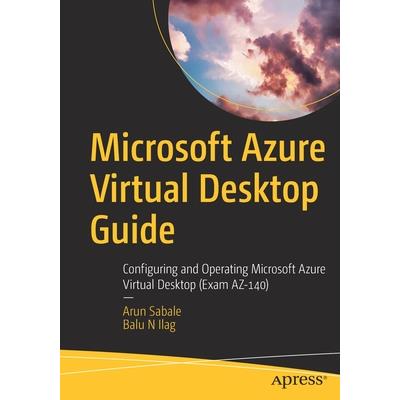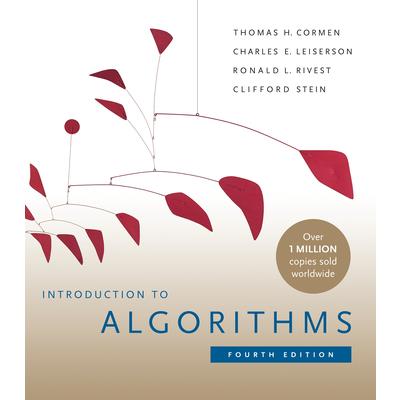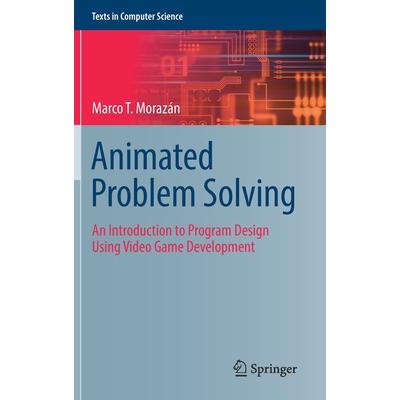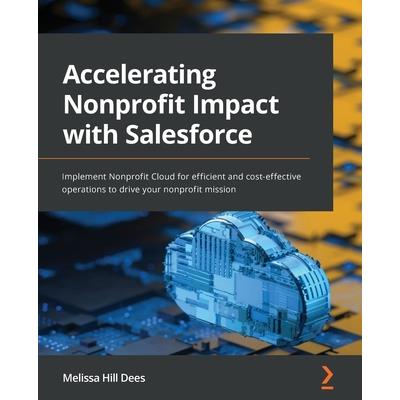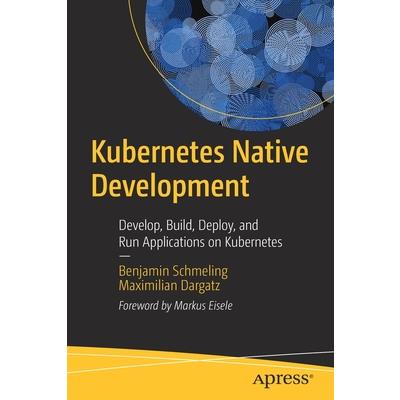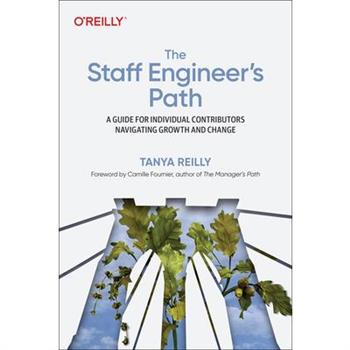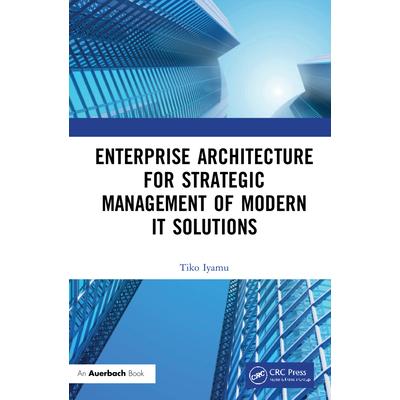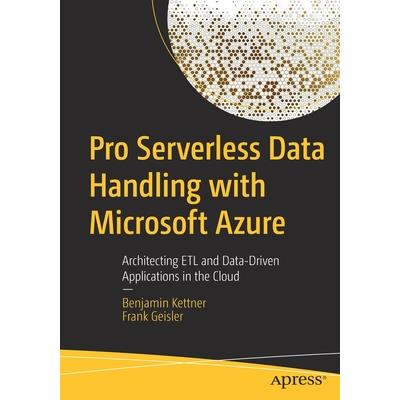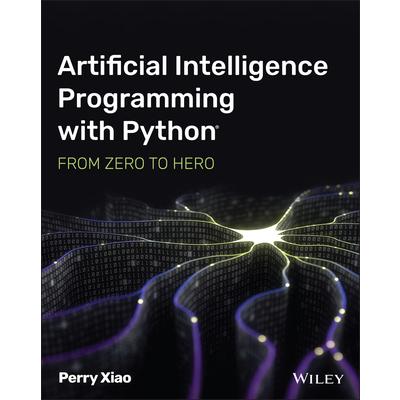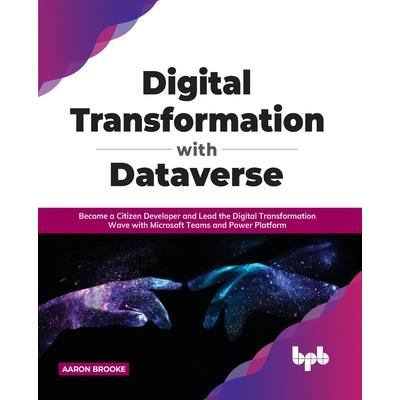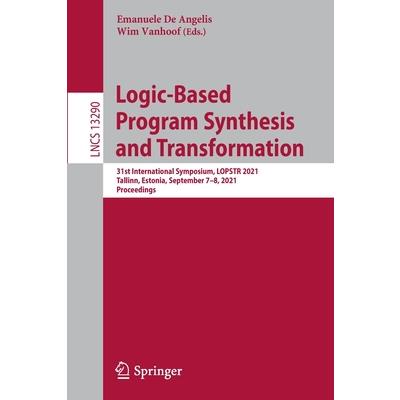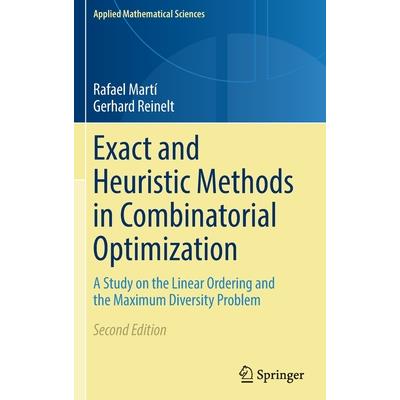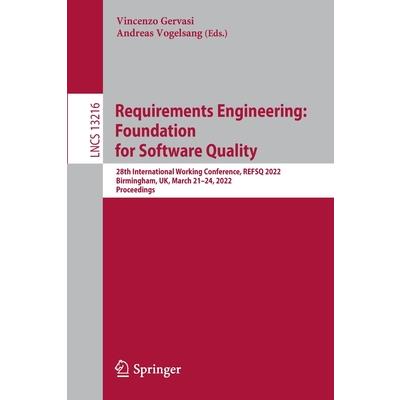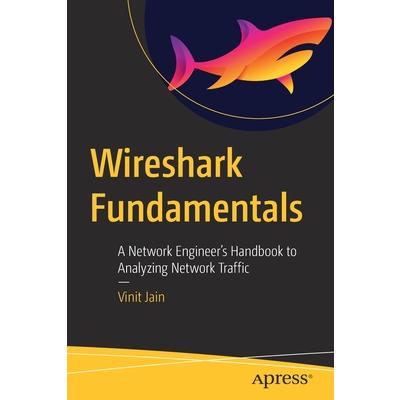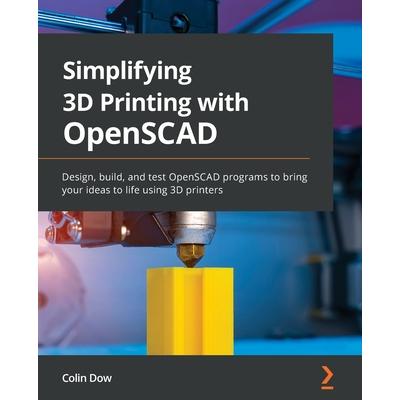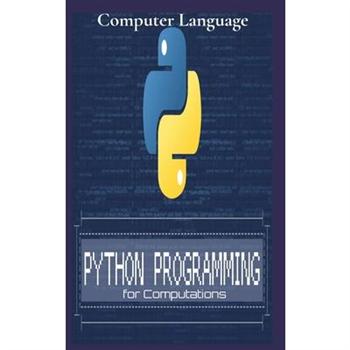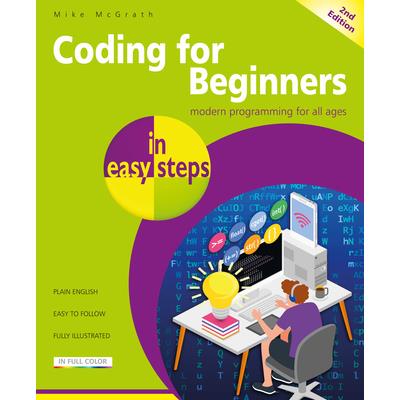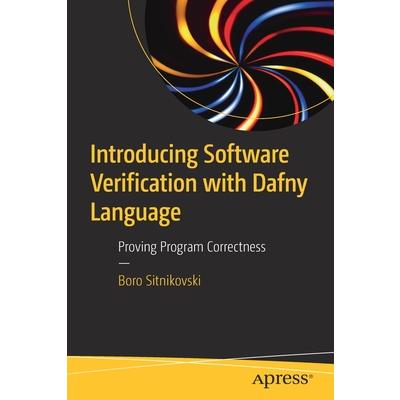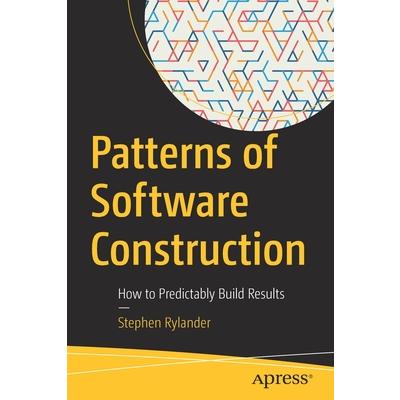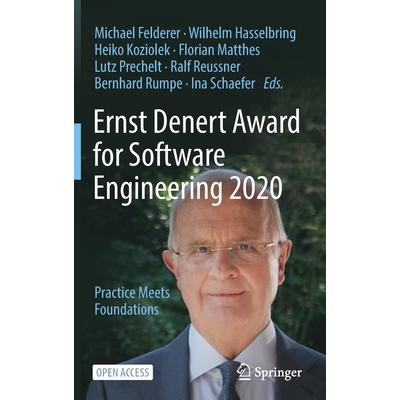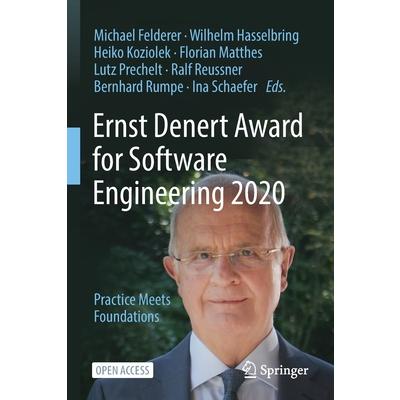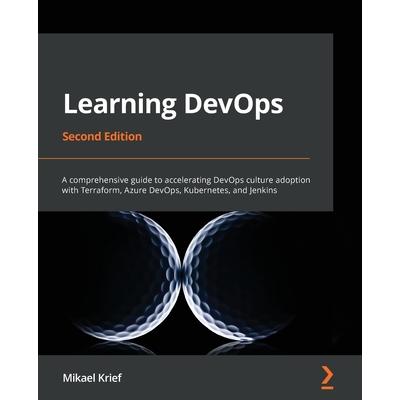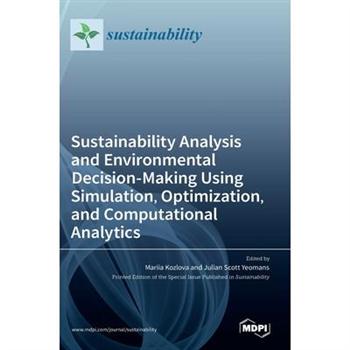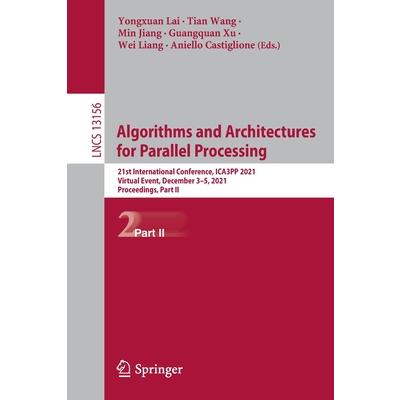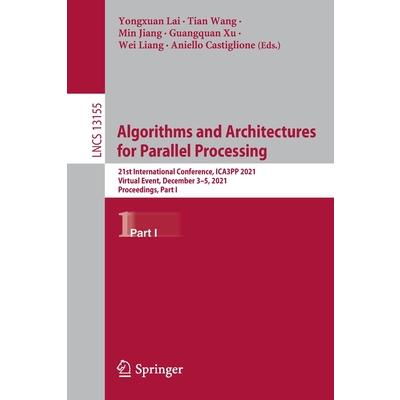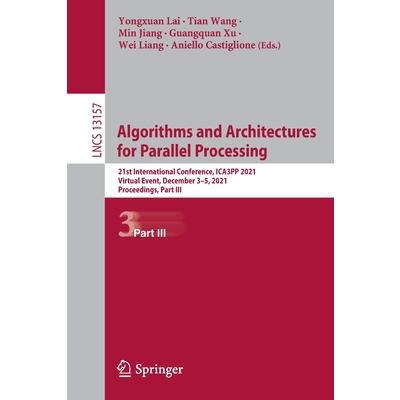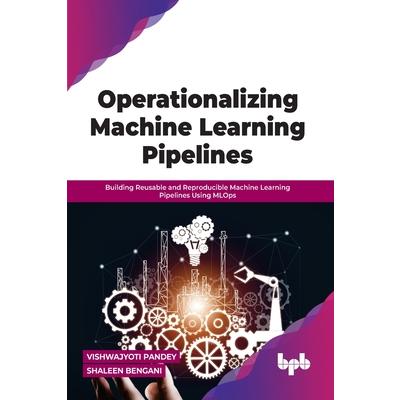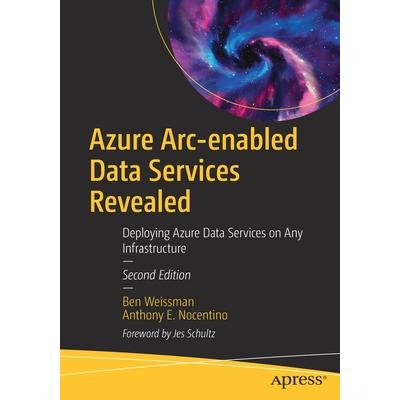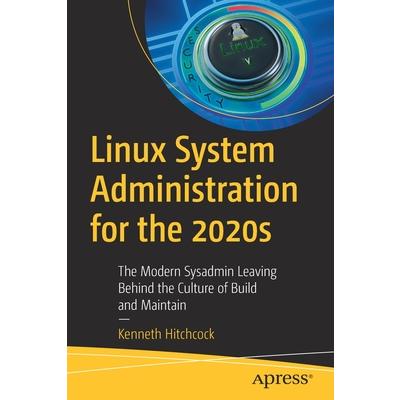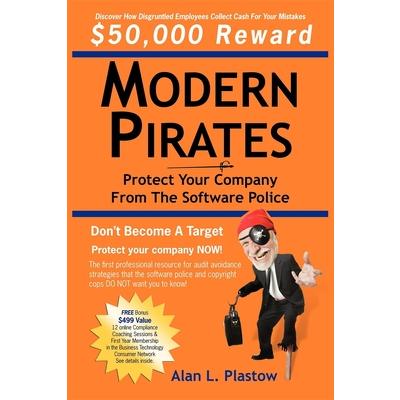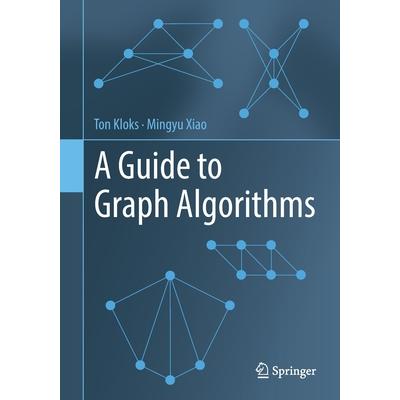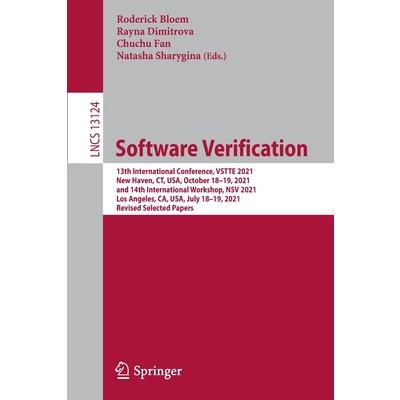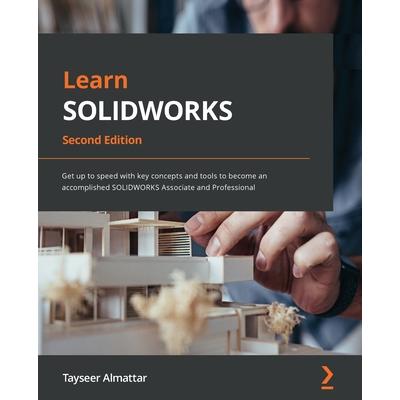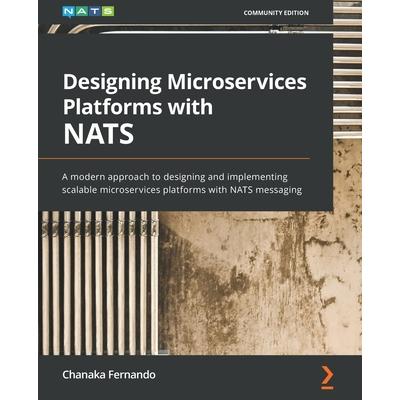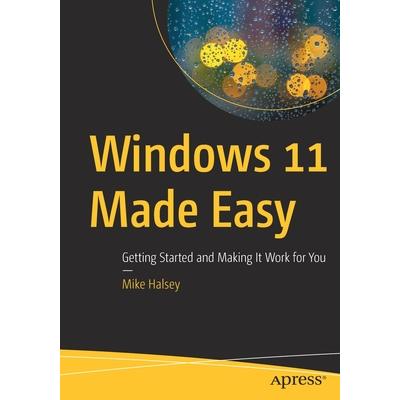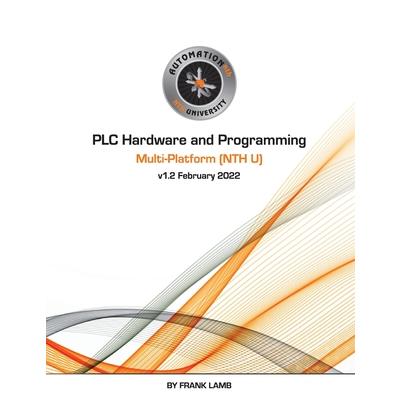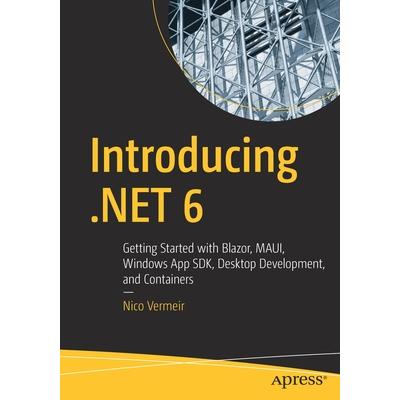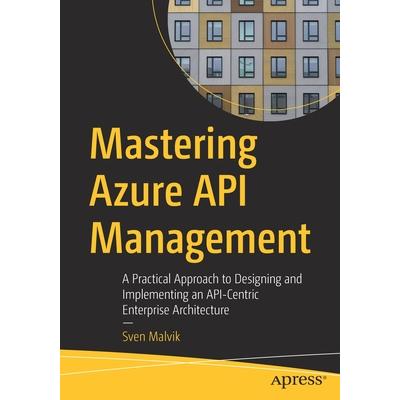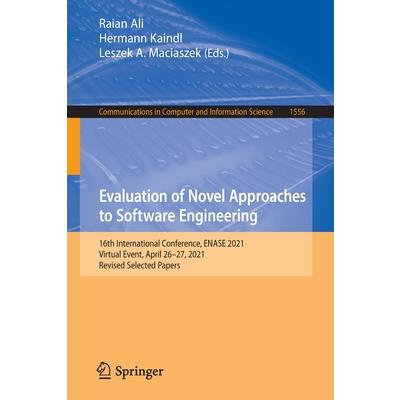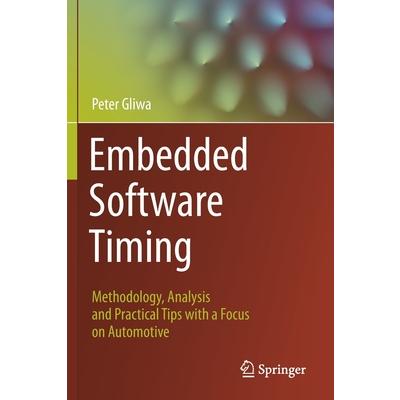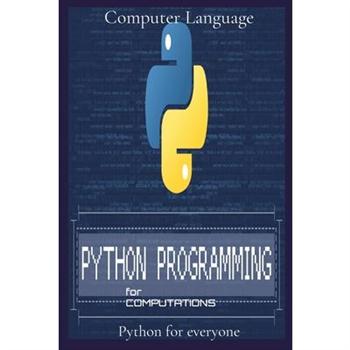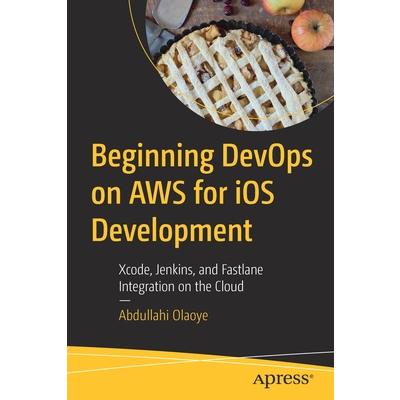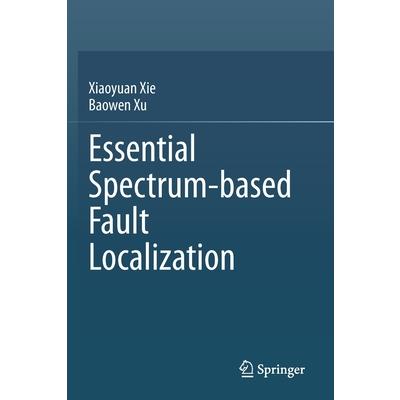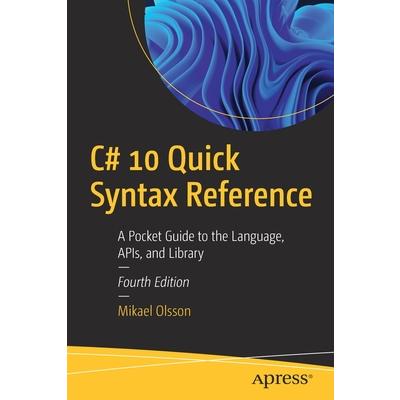Microsoft Azure Virtual Desktop Guide
Modernize your business to make it more agile using Azure Virtual Desktop (AVD). Azure Virtual Desktop is a cloud desktop virtualization platform that securely delivers virtual desktops and remote apps. This book will help you will help you to understand designing, implementing, configuring, and maintaining an Azure Virtual Desktop environment for enterprise and prepare to take the Microsoft AZ-140 certification exam. The book starts with an introduction to Azure Virtual Desktop and its design architecture. You will learn designing Azure Virtual desktop including user identities and profiles. Additionally, you will learn how to implement network for Azure Virtual desktop. Creation and configuration of host pools and session hosts is covered with all steps so that you can understand all options and select appropriate configuration for enterprise deployment. You will also go through session host images creation process and managing the image with image gallery and possible automation options. Managing access and security in AVD is discussed along with the installation, configuration, and management of FSLogix. The book will take you through user experience settings and show you how to configure apps on a session host. You will also learn about disaster recovery and how to automate AVD management tasks. Monitoring and managing performance is included as well as knowing how to use AVD automation to create and delete the host pool and session host. After reading this book, you will understand all aspects of AVD architecture, its implementation, monitoring, and management in preparation to take the AZ-140 exam. What You Will Learn Know what is Azure Virtual Desktop (or AVD) Design the Azure Virtual Desktop architecture for enterprise deployment, user identities, and profiles Plan and implement networking and storage for Azure Virtual Desktop Create, manage, and automate operating system images with image gallery Implement FSLogix Profile Containers and FSLogix Cloud Cache Create and configure host pools and session hosts (all detailed steps)Install and configure apps on a session host including all app publish optionsPlan and implement business continuity and disaster recovery Implement and manage OneDrive, Teams for a multi-session environmentMonitor and manage performance and health of Azure Virtual desktopWho This Book Is ForIT professional, Cloud administrators, support personnel, developers, DevOps engineers, architect, or consultant learning about designing, implementing, and managing Azure Virtual Desktop to improve knowledge or clear Microsoft AZ-140 exam.
Introduction to Algorithms, Fourth Edition
A comprehensive update of the leading algorithms text, with new material on matchings in bipartite graphs, online algorithms, machine learning, and other topics. Some books on algorithms are rigorous but incomplete; others cover masses of material but lack rigor. Introduction to Algorithms uniquely combines rigor and comprehensiveness. It covers a broad range of algorithms in depth, yet makes their design and analysis accessible to all levels of readers, with self-contained chapters and algorithms in pseudocode. Since the publication of the first edition, Introduction to Algorithms has become the leading algorithms text in universities worldwide as well as the standard reference for professionals. This fourth edition has been updated throughout. New for the fourth edition New chapters on matchings in bipartite graphs, online algorithms, and machine learningNew material on topics including solving recurrence equations, hash tables, potential functions, and suffix arrays140 new exercises and 22 new problemsReader feedback-informed improvements to old problemsClearer, more personal, and gender-neutral writing styleColor added to improve visual presentationNotes, bibliography, and index updated to reflect developments in the fieldWebsite with new supplementary materialWarning: Avoid counterfeit copies of Introduction to Algorithms by buying only from reputable retailers. Counterfeit and pirated copies are incomplete and contain errors.
Animated Problem Solving
This textbook is about systematic problem solving and systematic reasoning using type-driven design. There are two problem solving techniques that are emphasized throughout the book: divide and conquer and iterative refinement. Divide and conquer is the process by which a large problem is broken into two or more smaller problems that are easier to solve and then the solutions for the smaller pieces are combined to create an answer to the problem. Iterative refinement is the process by which a solution to a problem is gradually made better-like the drafts of an essay. Mastering these techniques are essential to becoming a good problem solver and programmer. The book is divided in five parts. Part I focuses on the basics. It starts with how to write expressions and subsequently leads to decision making and functions as the basis for problem solving. Part II then introduces compound data of finite size, while Part III covers compound data of arbitrarysize like e.g. lists, intervals, natural numbers, and binary trees. It also introduces structural recursion, a powerful data-processing strategy that uses divide and conquer to process data whose size is not fixed. Next, Part IV delves into abstraction and shows how to eliminate repetitions in solutions to problems. It also introduces generic programming which is abstraction over the type of data processed. This leads to the realization that functions are data and, perhaps more surprising, that data are functions, which in turn naturally leads to object-oriented programming. Part V introduces distributed programming, i.e., using multiple computers to solve a problem. This book promises that by the end of it readers will have designed and implemented a multiplayer video game that they can play with their friends over the internet. To achieve this, however, there is a lot about problem solving and programming that must be learned first. The game is developed using iterative refinement. The reader learns step-by-step about programming and how to apply new knowledge to develop increasingly better versions of the video game. This way, readers practice modern trends that are likely to be common throughout a professional career and beyond.
Accelerating Nonprofit Impact with Salesforce
Drive digital transformation for nonprofits with well-organized volunteer management, donor engagement, fundraising, and grantmaking using the intelligent and powerful capabilities of Salesforce Nonprofit CloudKey Features: Implement NPSP modules to scale varied business operations in nonprofitsAdminister and automate business processes and tasks with NPSP for nonprofitsCustomize and extend the standard functionalities of Nonprofit Cloud and NPSP as per client needs, resources, and critical outcomesBook Description: Salesforce Nonprofit Cloud enables a 360-degree view of people related to your nonprofit to connect fundraising, program management, and grantmaking. With a single, unified view of every interaction with constituents, nonprofits can create strong relationships with the community and streamline internal processes.The book starts by covering the tools and features that make up Nonprofit Cloud, helping you understand their standard functionalities and how Nonprofit Success Pack's (NPSP) data architecture is critical to implementation. You'll learn how the Nonprofit Cloud Program Management Module can connect your programs, automate case management, and track client progress. Next, you'll explore the tools for creating a change management process to increase user adoption. Moving ahead, you'll understand how to configure necessary permissions for NPSP administration and explore how declarative tools help better align the goals of a nonprofit organization. Toward the concluding chapters, you'll cover customizations, deployment, custom reports, and dashboards for fundraising analytics, as well as best practices for data management to maintain its integrity.By the end of this Salesforce book, you'll be able to build and configure the Nonprofit Cloud for a variety of use cases to achieve maximum social impact with the least amount of technical debt.What You Will Learn: Implement various components and modules in Nonprofit CloudImplement tools for grantmaking, program management, and case managementExtend the standard functionalities of Nonprofit Cloud and NPSPIdentify and use success metrics to prioritize goals and outcomes for implementationExplore the tools that Nonprofit Cloud offers for testing and deploymentBuild custom reports and dashboards for NPSP and use Tableau dashboard starters for fundraising analyticsUnderstand best practices for data management to maintain data accuracy and data integrityWho this book is for: This book is for technical consultants, functional consultants, and Salesforce architects who are working with nonprofit organizations and want to implement different functionalities within Nonprofit Cloud and NPSP optimally for business processes and tasks in their organizations. Salesforce administrator skills and overall proficiency with Salesforce are required to get the most out of this book.
Kubernetes Native Development
Building applications for Kubernetes is both a challenge and an opportunity--a challenge because the options and complexity to develop for Kubernetes are evolving rapidly, an opportunity because, if done right, your applications will go into production quicker, scale easier, and run smoother.This book outlines the impact of Containers and Kubernetes on modern software development and discusses the application frameworks to pick from, how to design an application, and how to develop for and on Kubernetes. You are guided through the application life cycle: development, build, and deployment into the runtime phase. In each phase, you see how it ties to Kubernetes and how to leverage its manifold capabilities. Applications will be more lightweight, easier to maintain, and simpler to operate by just focusing on the business logic. This book provides a strong technical foundation in modern software development and operations. Practical examples show you how toapply the concepts and teach you the full potential of Kubernetes. What You Will LearnGet hands-on experience developing, building, and deploying software to KubernetesDevelop your software to get the best out of KubernetesFocus on business logic while leveraging Kubernetes servicesDesign application components of different granularity from application server-based services to lightweight servicesAutomate deployments and Day 2 operations Who This Book Is ForDevelopers who want to close the gap between development and the production environment in order to gain high delivery performance in terms of throughput and stability. This book also targets application operations and DevOps engineers.
The Staff Engineer’s Path
For years, companies have rewarded their most effective engineers with management positions. But treating management as the default path for an engineer with leadership ability doesn't serve the industry well--or the engineer. The staff engineer's path allows engineers to contribute at a high level as role models, driving big projects, determining technical strategy, and raising everyone's skills. This in-depth book shows you how to understand your role, manage your time, master strategic thinking, and set the standard for technical work. You'll read about how to be a leader without direct authority, how to plan ahead to make the right technical decisions, and how to make everyone around you better, while still growing as an expert in your domain. By exploring the three pillars of a staff engineer's job, Tanya Reilly, a veteran of the staff engineer track, shows you how to: Take a broad, strategic view when thinking about your work Dive into practical tactics for making projects succeed Determine what "good engineering" means in your organization
Enterprise Architecture for Strategic Management of Modern It Solutions
The popularity of enterprise architecture (EA) has increased in the last two decades, in both business and academic domains. Despite the cumulative interest from all sectors, the implementation and practice of EA have been entangled with numerous challenges and complexities. Consequently, some organisations continue to theorise the concept, which has ramifications on practice and ROI. This has led to many studies that have been conducted, to understand the complexities impacting the implementation and practice of EA in organisations. Yet, the trajectory of some convolutions remain a mystery in many quarters. This attributes to the struggle to articulate the value of EA in many environments. Hence many organisations find it difficult to apply EA for strategic management of modern information technology (IT) solutions. Enterprise Architecture for strategic Management of Modern IT Solutions provides guidance on how to employ EA in deploying and managing IT solutions from pragmatic and implementable perspectives. Until now, implementation and practice of EA have been slow, despite its growing popularity and interest from all sectors. This book employs sociotechnical theories such as actor-network theory (ANT) and structuration theory (ST) as lenses to examine and explain why and how challenges and complexities exist and derail the implementation or practice of EA in organisations. This serves to enable practitioners and readers to gain fresh insights on why the challenges exist and how they can be addressed in creating collaborative capabilities for business enhancement, sustainability, and competitiveness. The book provides detailed insights on how to apply EA for organisational purposes, from three main fronts. First, it explains the implications that lack of understanding of EA have on organisational activities and processes. Second, it examines the challenges and complexities that hinder the implementation and practice of EA in organisations. Third, it proposes models and frameworks on how EA can be applied for strategic management of modern IT solutions in organisations. Written for postgraduates, researchers, academics, and professionals in the fields of EA, IT, and information systems, this book provides a valuable resource that will enable and enhance implementation and practice of EA including future studies.
Pro Serverless Data Handling with Microsoft Azure
Design and build architectures on the Microsoft Azure platform specifically for data-driven and ETL applications. Modern cloud architectures rely on serverless components more than ever, and this book helps you identify those components of data-driven or ETL applications that can be tackled using the technologies available on the Azure platform. The book shows you which Azure components are best suited to form a strong foundation for data-driven applications in the Microsoft Azure Cloud.If you are a solution architect or a decision maker, the conceptual aspects of this book will help you gain a deeper understanding of the underlying technology and its capabilities. You will understand how to develop using Azure Functions, Azure Data Factory, Logic Apps, and to employ serverless databases in your application to achieve the best scalability and design. If you are a developer, you will benefit from the hands-on approach used throughout this book. Many practical examples andarchitectures applied in real-world projects will be valuable to you on your path to serverless success. What You Will LearnKnow what services are available in Microsoft Azure that can deal with large amounts of dataDesign modern data applications based on serverless technology in the cloudTransform and present data without the use of infrastructureEmploy proven design patterns for rapid implementation of serverless data applicationsChoose the correct set of development tools for the services you are usingUnderstand the term "serverless" and how it can be a benefitIdentify scenarios in which serverless is not the best option availableWho This Book Is ForArchitects and decision makers who want to understand how modern architectures are designed and how to modernize their applications. The book is aimed at the developer who needs a steppingstone to quickly implement a serverless data application. And the book is for any IT professional who seeks a head start to serverless computing for data-heavy applications on the Azure platform.
Artificial Intelligence Programming with Python
A hands-on roadmap to using Python for artificial intelligence programming In Practical Artificial Intelligence Programming with Python: From Zero to Hero, veteran educator and photophysicist Dr. Perry Xiao delivers a thorough introduction to one of the most exciting areas of computer science in modern history. The book demystifies artificial intelligence and teaches readers its fundamentals from scratch in simple and plain language and with illustrative code examples. Divided into three parts, the author explains artificial intelligence generally, machine learning, and deep learning. It tackles a wide variety of useful topics, from classification and regression in machine learning to generative adversarial networks. He also includes: Fulsome introductions to MATLAB, Python, AI, machine learning, and deep learning Expansive discussions on supervised and unsupervised machine learning, as well as semi-supervised learning Practical AI and Python "cheat sheet" quick referencesThis hands-on AI programming guide is perfect for anyone with a basic knowledge of programming--including familiarity with variables, arrays, loops, if-else statements, and file input and output--who seeks to understand foundational concepts in AI and AI development.
Digital transformation with dataverse
Lead the digital transformation wave with Microsoft TeamsKey FeaturesExplore numerous business scenarios to gain a better grasp of Microsoft Dataverse for TeamsBuild your first app with step-by-step instructions and expand features with flows and bots.Find more about the application, environment, and licensing lifecycle management.DescriptionMicrosoft Dataverse for Teams is a low-code data platform built into Microsoft Teams that allows anybody to create and deploy apps, processes, and intelligent chatbots utilizing Power Apps, Power Automate, and Power Virtual Agents (PVA).You will be able to construct apps using step-by-step instructions for building up Teams, generating tables to hold data, and leveraging the data for your digital solutions without having to learn any coding languages. You'll be able to create your first app with Dataverse for Teams in under an hour if you follow the ideas in the book. You will learn how to use Power Automate and Power Virtual Agents to automate repetitive processes and create alerts.As you gain experience constructing these digital solutions, you'll be able to tell when it's time to upgrade from Dataverse for Teams to Dataverse, which includes more advanced features. Finally, you will learn about the administration and governance aspects of Microsoft Dataverse for Teams and PowerApps, as well as the license needs.By the end of the book, you will have acquired the skills necessary to build and implement an enterprise-grade digital solution. The readers will be prepared to lead a digital revolution in your organization.What you will learnCreate enterprise-grade applications for Teams by designing, developing, and deploying them.Build Up Your Strength Using Dataverse for Teams, automate flows, and PVA bots.Learn about the best practices in administration and security.Learn about Microsoft Dataverse's licensing requirements and advanced features.Identify instances in which your citizen development talents can be put to use in your business.Who this book is forThis book is for developers, business experts. Basic understanding of how to use softwares like PowerPoint, Excel is requiredTable of Contents1. Introduction to Digital transformation2. Exploring Microsoft Dataverse for Teams3. Using Microsoft Dataverse for Teams to Create Your First App4. Adding Images, Screens, and File Attachments to Your App5. Understanding Microsoft Dataverse6. Automating using Microsoft Dataverse for Teams7. Creating Effective Virtual Agents Bots for Teams using MicrosoftDataverse8. Managing the Application Life Cycle and the Application Life Cycle in theEnvironment9. Microsoft Dataverse Environment Upgrade10. Security and Governance to Ensure Enterprise Readiness11. Microsoft Dataverse and Dataverse for Teams licensingRead more
Logic-Based Program Synthesis and Transformation
This book constitutes the refereed proceedings of the 31st International Conference on Logic-Based Program Synthesis and Transformation, LOPSTR 2021, which was held during September 7-8, 2021.* The 8 papers presented in this volume were carefully reviewed and selected from a total of 15 reviewed submissions. Additionally, the book also contains 1 full-length invited talk. *Conference was held as a hybrid event due to the COVID-19 pandemic.
Exact and Heuristic Methods in Combinatorial Optimization
In the last decades, algorithmic advances as well as hardware and software improvements have provided an excellent environment to create and develop solving methods to hard optimization problems. Modern exact and heuristic techniques are dramatically enhancing our ability to solve significant practical problems. This monograph sets out state-of-the-art methodologies for solving combinatorial optimization problems, illustrating them with two well-known problems.This second edition of the book extends the first one by adding to the 'linear ordering problem' (LOP), included in the first edition, the 'maximum diversity problem' (MDP). In this way, we provide the reader with the background, elements and strategies to tackle a wide range of different combinatorial optimization problems. The exact and heuristic techniques outlined in these pages can be put to use in any number of combinatorial optimization problems. While the authors employ the LOP and the MDP to illustrate cutting-edge optimization technologies, the book is also a tutorial on how to design effective and successful implementations of exact and heuristic procedures alike. This monograph provides the basic principles and fundamental ideas that will enable students and practitioners to create valuable applications based on both exact and heuristic technologies. Specifically, it is aimed at engineers, scientists, operations researchers, and other applications specialists who are looking for the most appropriate and recent optimization tools to solve particular problems. The book provides a broad spectrum of advances in search strategies with a focus on its algorithmic and computational aspects.
Pharo with Style
Pharo is a modern, dynamically-typed, reflective, and pure object- oriented programming language. It offers strong productivity via a fully live programming environment. It supports Xtreme TDD, a powerful development technique that puts live objects at the center of the coding experience. More information at http: // www.pharo.org. Pharoers are used to say that programmers will never program the same once they coded seriously in Pharo. Learning Pharo is easy. Software developers learn Pharo in a couple of days. In addition, you can follow an excellent online free lecture available at: http: //mooc.pharo.org. Now programming is not only code logic but communicating with other developers via code. Pharo with Style, intended for both students and developers, defines a list of guidelines to help you writing better communicating code. Pharo with Style will bring you fast to the next level: You will code like the pros.
Requirements Engineering: Foundation for Software Quality
This book constitutes the refereed proceedings of the 28th International Working Conference on Requirements Engineering: Foundation for Software Quality, REFSQ 2022, which was held in Aston, Birmingham, UK, during March 21-24, 2022. The 12 full and 7 short papers presented in this volume were carefully reviewed and selected from 45 submissions. They were organized in topical sections as follows: Artificial intelligence and explainability; machine learning; natural language processing; user stories; business, markets, and industrial practice; and cognition and expression. The special theme for REFSQ 2022 was "Explainability in Requirements Engineering".
Wireshark Fundamentals
Understand the fundamentals of the Wireshark tool that is key for network engineers and network security analysts. This book explains how the Wireshark tool can be used to analyze network traffic and teaches you network protocols and features.Author Vinit Jain walks you through the use of Wireshark to analyze network traffic by expanding each section of a header and examining its value. Performing packet capture and analyzing network traffic can be a complex, time-consuming, and tedious task. With the help of this book, you will use the Wireshark tool to its full potential. You will be able to build a strong foundation and know how Layer 2, 3, and 4 traffic behave, how various routing protocols and the Overlay Protocol function, and you will become familiar with their packet structure.Troubleshooting engineers will learn how to analyze traffic and identify issues in the network related to packet loss, bursty traffic, voice quality issues, etc. The book will help you understand the challenges faced in any network environment and how packet capture tools can be used to identify and isolate those issues.This hands-on guide teaches you how to perform various lab tasks. By the end of the book, you will have in-depth knowledge of the Wireshark tool and its features, including filtering and traffic analysis through graphs. You will know how to analyze traffic, find patterns of offending traffic, and secure your network.What You Will LearnUnderstand the architecture of Wireshark on different operating systemsAnalyze Layer 2 and 3 traffic framesAnalyze routing protocol trafficTroubleshoot using Wireshark GraphsWho This Book Is ForNetwork engineers, security specialists, technical support engineers, consultants, and cyber security engineers
Simplifying 3D Printing with OpenSCAD
A step by step guide to OpenSCAD that makes 3D printing easyKey Features: Learn about 3D printing technology and the software used to design your objectsDiscover the various FDM slicer programs used to create G-code for 3D printer jobsUnderstand how to use a slicer program to create G-code to run your 3D printer jobBook Description: OpenSCAD is an open-source 3D design platform that helps you bring your designs to life. This book will show you how to make the best use of OpenSCAD to design and build objects using 3D printers.This OpenSCAD book starts by taking you through the 3D printing technology, the software used for designing your objects, and an analysis of the G-code produced by the 3D printer slicer software. Complete with step-by-step explanations of essential concepts and real-world examples such as designing and printing a 3D name badge, model rocket, and laptop stand, the book helps you learn about 3D printers and how to set up a printing job. You'll design your objects using the OpenSCAD program that provides a robust and free 3D compiler at your fingertips. As you set up a 3D printer for a print job, you'll gain a solid understanding of how to configure the parameters to build well-defined designs.By the end of this 3D printing book, you'll be ready to start designing and printing your own 3D printed products using OpenSCAD.What You Will Learn: Gain a solid understanding of 3D printers and 3D design requirements to start creating your own objectsPrepare a 3D printer for a job starting from leveling the print bed and loading the filamentDiscover various OpenSCAD commands and use them to create shapesUnderstand how OpenSCAD compares to other CAD programsGet to grips with combining text and a cube to create an objectExplore the common libraries in OpenSCADWho this book is for: This book is for engineers, hobbyists, teachers, 3D printing enthusiasts, and individuals working in the field of 3D printing. Basic knowledge of setting up and running 3D printers is assumed.
Coding for Beginners in Easy Steps
Coding forBeginners in easy steps, 2nd edition will appeal toanyone, of any age, who wants to begin coding computer programs. Use this guideto help you quickly create a programming environment on your computer, then, ineasy steps, learn how to: Write Python code to createyour programs Store information in datastructures Control program flow usingcontrol structures Create re-usable blocks ofprogram code Code powerful algorithms andclasses for Object Oriented Programming (OOP) All features are illustratedusing the Python language color-coding convention, and all code is available todownload free - making it even easier! Includes comparison examples inC, C++ and Java to give you a rounded view of computer coding. Ideal fornewcomers to programming, including youngsters needing to learn coding for theschool curriculum - all in easy steps!
Introducing Software Verification with Dafny Language
Get introduced to software verification and proving correctness using the Microsoft Research-backed programming language, Dafny. While some other books on this topic are quite mathematically rigorous, this book will use as little mathematical symbols and rigor as possible, and explain every concept using plain English. It's the perfect primer for software programmers and developers with C# and other programming language skills.Writing correct software can be hard, so you'll learn the concept of computation and software verification. Then, apply these concepts and techniques to confidently write bug-free code that is easy to understand. Source code will be available throughout the book and freely available via GitHub.After reading and using this book you'll be able write correct, big free software source code applicable no matter which platform and programming language you use. What You Will LearnDiscover the Microsoft Research-backed Dafny programming language Explore Hoare logic, imperative and functional programsWork with pre- and post-conditionsUse data types, pattern matching, and classesDive into verification examples for potential re-use for your own projectsWho This Book Is ForSoftware developers and programmers with at least prior, basic programming experience. No specific language needed. It is also for those with very basic mathematical experience (function, variables).
Patterns of Software Construction
Master how to implement a repeatable software construction system. This book closely examines how a system is designed to tie a series of activities together that are needed when building software-intensive systems. Software construction and operations don't get enough attention as a repeatable system. The world is stuck in agile backlog grooming sessions, and quality is not increasing. Companies' budgets are shrinking, and teams need a way to get more done with less, consistently. This topic is very relevant to our current economic conditions and continuing globalization trends. A reason we constantly need more hands-on-the-keyboards is because of all the waste created in development cycles. We need more literature on how to "do software" not just write software. These goals are accomplished using the concept of evolutions, much like the Navy SEALS train their team members. For LIFT, the evolutions are: Plan, Build, Test, Release, Operate and Manage. The entire purpose of the book is instructing professionals how to use these distinct evolutions while remaining agile. And then, inside of each evolution, to explicitly break down the inputs to the evolution, outputs and series of activities taking place. Patterns of Software Construction clearly outlines how together this becomes the system.What You Will LearnOptimize each evolution of a software delivery cycleReview best practices of planning, highest return in the build cycle, and ignored practices in test, release, and operate Apply the highest return techniques during the software build evolutionWho This Book is ForManagers, developers, tech lead, team lead, aspiring engineer, department leaders in corporations, executives, small business owner, IT Director
Ernst Denert Award for Software Engineering 2020
This open access book provides an overview of the dissertations of the eleven nominees for the Ernst Denert Award for Software Engineering in 2020. The prize, kindly sponsored by the Gerlind & Ernst Denert Stiftung, is awarded for excellent work within the discipline of Software Engineering, which includes methods, tools and procedures for better and efficient development of high quality software. An essential requirement for the nominated work is its applicability and usability in industrial practice.The book contains eleven papers that describe the works by Jonathan Brachth瓣user (EPFL Lausanne) entitled What You See Is What You Get: Practical Effect Handlers in Capability-Passing Style, Mojdeh Golagha's (Fortiss, Munich) thesis How to Effectively Reduce Failure Analysis Time?, Nikolay Harutyunyan's (FAU Erlangen-N羹rnberg) work on Open Source Software Governance, Dominic Henze's (TU Munich) research about Dynamically Scalable Fog Architectures, Anne Hess's (Fraunhofer IESE, Kaiserslautern) work on Crossing Disciplinary Borders to Improve Requirements Communication, Istvan Koren's (RWTH Aachen U) thesis DevOpsUse: A Community-Oriented Methodology for Societal Software Engineering, Yannic Noller's (NU Singapore) work on Hybrid Differential Software Testing, Dominic Steinhofel's (TU Darmstadt) thesis entitled Ever Change a Running System: Structured Software Reengineering Using Automatically Proven-Correct Transformation Rules, Peter W瓣gemann's (FAU Erlangen-N羹rnberg) work Static Worst-Case Analyses and Their Validation Techniques for Safety-Critical Systems, Michael von Wenckstern's (RWTH Aachen U) research on Improving the Model-Based Systems Engineering Process, and Franz Zieris's (FU Berlin) thesis on Understanding How Pair Programming Actually Works in Industry: Mechanisms, Patterns, and Dynamics - which actually won the award. The chapters describe key findings of the respective works, show their relevance and applicability to practice and industrial software engineering projects, and provide additional information and findings that have only been discovered afterwards, e.g. when applying the results in industry. This way, the book is not only interesting to other researchers, but also to industrial software professionals who would like to learn about the application of state-of-the-art methods in their daily work.
Mathematics, Physics & Chemistry with the Wolfram Language
The Wolfram language is the programming language of Mathematica, used increasingly by scientists due to its ease of learning and user-friendliness. This book focuses on applications of the Wolfram language to applied mathematics, physics and chemistry. Topics discussed are broad and comprehensive, from differential equations and special functions to fractals and chess, from electromagnetism and optics to relativity and black holes. There is also extensive coverage of quantum theory and quantum chemistry, and the book is peppered with more than 200 color graphics to aid visualization of these concepts. The program codes are provided online as Mathematica notebooks, allowing readers to modify them and manipulate the graphics in real time. This book should be a valuable resource for researchers, educators and students in science and computing who can profit from a more interactive form of instruction.
Ernst Denert Award for Software Engineering 2020
This open access book provides an overview of the dissertations of the eleven nominees for the Ernst Denert Award for Software Engineering in 2020. The prize, kindly sponsored by the Gerlind & Ernst Denert Stiftung, is awarded for excellent work within the discipline of Software Engineering, which includes methods, tools and procedures for better and efficient development of high quality software. An essential requirement for the nominated work is its applicability and usability in industrial practice.The book contains eleven papers that describe the works by Jonathan Brachth瓣user (EPFL Lausanne) entitled What You See Is What You Get: Practical Effect Handlers in Capability-Passing Style, Mojdeh Golagha's (Fortiss, Munich) thesis How to Effectively Reduce Failure Analysis Time?, Nikolay Harutyunyan's (FAU Erlangen-N羹rnberg) work on Open Source Software Governance, Dominic Henze's (TU Munich) research about Dynamically Scalable Fog Architectures, Anne Hess's (Fraunhofer IESE, Kaiserslautern) work on Crossing Disciplinary Borders to Improve Requirements Communication, Istvan Koren's (RWTH Aachen U) thesis DevOpsUse: A Community-Oriented Methodology for Societal Software Engineering, Yannic Noller's (NU Singapore) work on Hybrid Differential Software Testing, Dominic Steinhofel's (TU Darmstadt) thesis entitled Ever Change a Running System: Structured Software Reengineering Using Automatically Proven-Correct Transformation Rules, Peter W瓣gemann's (FAU Erlangen-N羹rnberg) work Static Worst-Case Analyses and Their Validation Techniques for Safety-Critical Systems, Michael von Wenckstern's (RWTH Aachen U) research on Improving the Model-Based Systems Engineering Process, and Franz Zieris's (FU Berlin) thesis on Understanding How Pair Programming Actually Works in Industry: Mechanisms, Patterns, and Dynamics - which actually won the award. The chapters describe key findings of the respective works, show their relevance and applicability to practice and industrial software engineering projects, and provide additional information and findings that have only been discovered afterwards, e.g. when applying the results in industry. This way, the book is not only interesting to other researchers, but also to industrial software professionals who would like to learn about the application of state-of-the-art methods in their daily work.
Learning DevOps - Second Edition
Implement modern DevOps techniques to increase business productivity, agility, reliability, security, and scalabilityKey Features: Learn how to use business resources effectively for improved productivity and collaborationUse infrastructure as code practices to build large-scale cloud infrastructureLeverage the ultimate open source DevOps tools to achieve continuous integration and continuous delivery (CI/CD)Book Description: In the implementation of DevOps processes, the choice of tools is crucial to the sustainability of projects and collaboration between developers and ops. This book presents the different patterns and tools for provisioning and configuring an infrastructure in the cloud, covering mostly open source tools with a large community contribution, such as Terraform, Ansible, and Packer, which are assets for automation.This DevOps book will show you how to containerize your applications with Docker and Kubernetes and walk you through the construction of DevOps pipelines in Jenkins as well as Azure pipelines before covering the tools and importance of testing. You'll find a complete chapter on DevOps practices and tooling for open source projects before getting to grips with security integration in DevOps using Inspec, Hashicorp Vault, and Azure Secure DevOps kit. You'll also learn about the reduction of downtime with blue-green deployment and feature flags techniques before finally covering common DevOps best practices for all your projects.By the end of this book, you'll have built a solid foundation in DevOps and developed the skills necessary to enhance a traditional software delivery process using modern software delivery tools and techniques.What You Will Learn: Understand the basics of infrastructure as code patterns and practicesGet an overview of Git command and Git flowInstall and write Packer, Terraform, and Ansible code for provisioning and configuring cloud infrastructure based on Azure examplesUse Vagrant to create a local development environmentContainerize applications with Docker and KubernetesApply DevSecOps for testing compliance and securing DevOps infrastructureBuild DevOps CI/CD pipelines with Jenkins, Azure Pipelines, and GitLab CIExplore blue-green deployment and DevOps practices for open sources projectsWho this book is for: If you are an application developer or a system administrator interested in understanding continuous integration, continuous delivery, and containerization with DevOps tools and techniques, this book is for you. Knowledge of DevOps fundamentals and Git principles is required.
Sustainability Analysis and Environmental Decision-Making Using Simulation, Optimization, and Computational Analytics
Effective environmental decision-making is often challenging and complex, where final solutions frequently possess inherently subjective political and socio-economic components. Consequently, complex sustainability applications in the "real world" frequently employ computational decision-making approaches to construct solutions to problems containing numerous quantitative dimensions and considerable sources of uncertainty. This volume includes a number of such applied computational analytics papers that either create new decision-making methods or provide innovative implementations of existing methods for addressing a wide spectrum of sustainability applications, broadly defined. The disparate contributions all emphasize novel approaches of computational analytics as applied to environmental decision-making and sustainability analysis - be this on the side of optimization, simulation, modelling, computational solution procedures, visual analytics, and/or information technologies.
Algorithms and Architectures for Parallel Processing
The three volume set LNCS 13155, 13156, and 13157 constitutes the refereed proceedings of the 21st International Conference on Algorithms and Architectures for Parallel Processing, ICA3PP 2021, which was held online during December 3-5, 2021. The total of 145 full papers included in these proceedings were carefully reviewed and selected from 403 submissions. They cover the many dimensions of parallel algorithms and architectures including fundamental theoretical approaches, practical experimental projects, and commercial components and systems. The papers were organized in topical sections as follows: Part I, LNCS 13155: Deep learning models and applications; software systems and efficient algorithms; edge computing and edge intelligence; service dependability and security algorithms; data science; Part II, LNCS 13156: Software systems and efficient algorithms; parallel and distributed algorithms and applications; data science; edge computing and edge intelligence; blockchain systems; deept learning models and applications; IoT; Part III, LNCS 13157: Blockchain systems; data science; distributed and network-based computing; edge computing and edge intelligence; service dependability and security algorithms; software systems and efficient algorithms.
Algorithms and Architectures for Parallel Processing
The three volume set LNCS 13155, 13156, and 13157 constitutes the refereed proceedings of the 21st International Conference on Algorithms and Architectures for Parallel Processing, ICA3PP 2021, which was held online during December 3-5, 2021. The total of 145 full papers included in these proceedings were carefully reviewed and selected from 403 submissions. They cover the many dimensions of parallel algorithms and architectures including fundamental theoretical approaches, practical experimental projects, and commercial components and systems. The papers were organized in topical sections as follows: Part I, LNCS 13155: Deep learning models and applications; software systems and efficient algorithms; edge computing and edge intelligence; service dependability and security algorithms; data science; Part II, LNCS 13156: Software systems and efficient algorithms; parallel and distributed algorithms and applications; data science; edge computing and edge intelligence; blockchain systems; deept learning models and applications; IoT; Part III, LNCS 13157: Blockchain systems; data science; distributed and network-based computing; edge computing and edge intelligence; service dependability and security algorithms; software systems and efficient algorithms.
Algorithms and Architectures for Parallel Processing
The three volume set LNCS 13155, 13156, and 13157 constitutes the refereed proceedings of the 21st International Conference on Algorithms and Architectures for Parallel Processing, ICA3PP 2021, which was held online during December 3-5, 2021. The total of 145 full papers included in these proceedings were carefully reviewed and selected from 403 submissions. They cover the many dimensions of parallel algorithms and architectures including fundamental theoretical approaches, practical experimental projects, and commercial components and systems. The papers were organized in topical sections as follows: Part I, LNCS 13155: Deep learning models and applications; software systems and efficient algorithms; edge computing and edge intelligence; service dependability and security algorithms; data science; Part II, LNCS 13156: Software systems and efficient algorithms; parallel and distributed algorithms and applications; data science; edge computing and edge intelligence; blockchain systems; deept learning models and applications; IoT; Part III, LNCS 13157: Blockchain systems; data science; distributed and network-based computing; edge computing and edge intelligence; service dependability and security algorithms; software systems and efficient algorithms.
Operationalizing Machine Learning Pipelines
Implementing ML pipelines using MLOpsKey FeaturesIn-depth knowledge of MLOps, including recommendations for tools and processes.Includes only open-source cloud-agnostic tools for demonstrating MLOps.Covers end-to-end examples of implementing the whole process on Google Cloud Platform.DescriptionThis book will provide you with an in-depth understanding of MLOps and how you can use it inside an enterprise. Each tool discussed in this book has been thoroughly examined, providing examples of how to install and use them, as well as sample data.This book will teach you about every stage of the machine learning lifecycle and how to implement them within an organisation using a machine learning framework. With GitOps, you'll learn how to automate operations and create reusable components such as feature stores for use in various contexts. You will learn to create a server-less training and deployment platform that scales automatically based on demand. You will learn about Polyaxon for machine learning model training, and KFServing, for model deployment. Additionally, you will understand how you should monitor machine learning models in production and what factors can degrade the model's performance.You can apply the knowledge gained from this book to adopt MLOps in your organisation and tailor the requirements to your specific project. As you keep an eye on the model's performance, you'll be able to train and deploy it more quickly and with greater confidence.What you will learnQuick grasp of the entire machine learning lifecycle and tricks to manage all components.Learn to train and validate machine learning models for scalability.Get to know the pros of cloud computing for scaling ML operations.Covers aspects of ML operations, such as reproducibility and scalability, in detail.Get to know how to monitor machine learning models in production.Learn and practice automating the ML training and deployment processes.Who this book is forThis book is intended for machine learning specialists, data scientists, and data engineers who wish to improve and increase their MLOps knowledge to streamline machine learning initiatives. Readers with a working knowledge of the machine learning lifecycle would be advantageous.Table of Contents1. DS/ML Projects Initial Setup2. ML Projects Lifecycle3. ML Architecture Framework and Components4. Data Exploration and Quantifying Business Problem5. Training & Testing ML model6. ML model performance measurement7. CRUD operations with different JavaScript frameworks8. Feature Store9. Building ML PipelineRead more
Azure Arc-Enabled Data Services Revealed
Get introduced to Azure Arc-enabled Data Services and the powerful capabilities to deploy and manage local, on-premises, and hybrid cloud data resources using the same centralized management and tooling you get from the Azure cloud. This book shows how you can deploy and manage databases running on SQL Server and Postgres in your corporate data center or any cloud as if they were part of the Azure platform. This second edition has been updated to the latest codebase, allowing you to use this book as your handbook to get started with Azure Arc-enabled Data Services today. Learn how to benefit from Azure's centralized management, the automated rollout of patches and updates, managed backups, and more. This book is the perfect choice for anyone looking for a hybrid or multi-vendor cloud strategy for their data estate. The authors walk you through the possibilities and requirements to get Azure SQL Managed Instance and PostgresSQL Hyperscale deployed outside of Azure, so the services are accessible to companies that cannot move to the cloud or do not want to use the Microsoft cloud exclusively. The technology described in this book will benefit those required to keep sensitive services, such as medical databases, away from the public cloud equally as those who can't move to a public cloud for other reasons such as infrastructure constraints but still want to benefit from the Azure cloud and the centralized management and tooling that it supports.What You Will LearnUnderstand the fundamentals and architecture of Azure Arc-enabled data servicesBuild a multi-cloud strategy based on Azure Data ServicesDeploy Azure Arc-enabled data services on premises or in any cloudDeploy Azure Arc-enabled SQL Managed Instance on premises or in any cloudDeploy Azure Arc-enabled PostgreSQL Hyperscale on premises or in any cloudBackupand Restore your data that is managed by Azure Arc-enabled data servicesManage Azure-enabled data services running outside of AzureMonitor Azure-enabled data services through Grafana and KibanaMonitor Azure-enabled data services running outside of Azure through Azure MonitorWho This Book Is ForDatabase administrators and architects who want to manage on-premises or hybrid cloud data resources from the Microsoft Azure cloud. Especially for those wishing to take advantage of cloud technologies while keeping sensitive data on premises and under physical control.
Linux System Administration for the 2020s
Build and manage large estates, and use the latest OpenSource management tools to breakdown a problems. This book is divided into 4 parts all focusing on the distinct aspects of Linux system administration. The book begins by reviewing the foundational blocks of Linux and can be used as a brief summary for new users to Linux and the OpenSource world. Moving on to Part 2 you'll start by delving into how practices have changed and how management tooling has evolved over the last decade. You'll explore new tools to improve the administration experience, estate management and its tools, along with automation and containers of Linux. Part 3 explains how to keep your platform healthy through monitoring, logging, and security. You'll also review advanced tooling and techniques designed to resolve technical issues. The final part explains troubleshooting and advanced administration techniques, and less known methods for resolving stubborn problems.With Linux System Administration for the 2020s you'll learn how to spend less time doing sysadmin work and more time on tasks that push the boundaries of your knowledge. What You'll Learn Explore a shift in culture and redeploy rather than fix Improve administration skills by adopting modern toolingAvoid bad practices and rethink troubleshootingCreate a platform that requires less human intervention Who This Book Is ForEveryone from sysadmins, consultants, architects or hobbyists.
Modern Pirates
We have evidence that your company is engaged in the unlawful use of our software. We will not hesitate to enforce our rights through litigation. Will you be prepared when the software police or copyright cops send you a letter opening with this statement? Every day, hundreds of companies like yours face accusations of software copyright violations. Right this minute, there are more than 26 American and 95 global copyright enforcement entities targeting you. How many of your employees wouldn't hesitate to report your company's licensing mistakes for a $2,000 to $50,000 reward? Whether large or small, your company could be audited at any time by a copyright holder bent on increasing revenue streams at your expense. Consumer ignorance is not an option. Litigation is the norm, with violation costs reaching millions of dollars. Modern Pirates reveals, in detail, the risks your company takes simply by owning computers. Inside Modern Pirates you'll discover the tactics being used to litigate compliance along with proven strategies for preventing your company from becoming a helpless target. A copyright enforcement group only has to investigate your company once. You have to monitor your copyright compliance every single day. Modern Pirates documents your best defense.
A Guide to Graph Algorithms
Chapter 1. Graphs.- Chapter 2. Algorithms.- Chapter 3. Problem Formulations.- Chapter 4. Recent Trends.
Software Verification
This book constitutes the refereed proceedings of the 13th International Conference on Verified Software, VSTTE 2021, and the 14th International Workshop on Numerical Software Verification, NSV 2021, held online, in July/ October 2021. Due to COVID-19 pandemic the conference was held virtually.There were 10 papers presented in this volume were carefully reviewed and selected from 20 submissions. The papers focuses on challenges of the verification of cyber-physical systems with machine learning components and making large-scale verified software a practical reality and much more.
Learn SOLIDWORKS 2022 - Second Edition
Get to grips with leading 3D engineering and product design application to design robust 3D models and achieve CSWA and CSWP certification with SOLIDWORKS Specialist, Tayseer AlmattarKey Features: - Gain comprehensive insights into the core aspects of 3D modeling's mechanical parts- Learn how to generate assembly designs with both standard and advanced mates- Discover design practices for both 2D as well as 3D modeling and prepare to achieve CSWP and CSWA certificationBook Description: SOLIDWORKS is the leading choice for 3D engineering and product design applications across industries such as aviation, automobile, and consumer product design. This book helps you to get up and running with SOLIDWORKS and understand each new concept and tool with the help of easy-to-follow exercises.You'll begin with the basics, exploring the software interface and finding out how to work with drawing files. The book then guides you through topics such as sketching, building complex 3D models, generating dynamic and static assemblies, and generating 2D engineering drawings to prepare you to take on any design project. You'll also work with practical exercises to get hands-on experience with creating sketches, 3D part models, assemblies, and drawings. To reinforce your understanding of SOLIDWORKS, the book is supplemented by downloadable files that will help you to understand the concepts and exercises more easily. Finally, you'll also work on projects for 3D modeling objects inspired by everyday life.By the end of this SOLIDWORKS book, you'll have gained the skills you need to create professional 3D mechanical models using SOLIDWORKS and be able to prepare effectively for the Certified SOLIDWORKS Associate (CSWA) and Certified SOLIDWORKS Professional (CSWP) exams.What You Will Learn: - Understand the fundamentals of SOLIDWORKS and parametric modeling- Create professional 2D sketches as bases for 3D models using simple and advanced modeling techniques- Use SOLIDWORKS drawing tools to generate standard engineering drawings- Evaluate mass properties and materials for designing parts and assemblies- Join different parts together to form static and dynamic assemblies- Discover expert tips and tricks to generate different part and assembly configurations for your mechanical designsWho this book is for: This book is for aspiring engineers, designers, makers, draftsmen, and hobbyists looking to get started with SOLIDWORKS and explore the software. Individuals who are interested in becoming Certified SOLIDWORKS Associates (CSWAs) or Certified SOLIDWORKS Professionals (CSWPs) will also find this book useful. No specific background is needed to follow the concepts in the book as it starts from the basics of SOLIDWORKS. However, basic theoretical knowledge of 3D modeling will be helpful to get the most out of this book.Table of Contents- Introduction to SOLIDWORKS- Interface and Navigation- SOLIDWORKS 2D Sketching Basics- Special Sketching Commands- Basic Primary One-Sketch Features- Basic Secondary Multi-Sketch Features- Materials and Mass Properties- Standard Assembly Mates- Introduction to Engineering Drawing- Basic SOLIDWORKS Drawing Layout and Annotations- Bills of Materials- Advanced SOLIDWORKS Mechanical Core Features- Equations, Configurations, and Design Tables- SOLIDWORKS Assemblies and Advanced Mates- Advanced SOLIDWORKS Assemblies Competencies
Designing Microservices Platforms with NATS
A complete reference for designing and building scalable microservices platforms with NATS messaging technology for inter-service communication with security and observabilityKey Features: Understand the use of a messaging backbone for inter-service communication in microservices architectureDesign and build a real-world microservices platform with NATS as the messaging backbone using the Go programming languageExplore security, observability, and best practices for building a microservices platform with NATS Book Description: Building a scalable microservices platform that caters to business demands is critical to the success of that platform. In a microservices architecture, inter-service communication becomes a bottleneck when the platform scales. This book provides a reference architecture along with a practical example of how to implement it for building microservices-based platforms with NATS as the messaging backbone for inter-service communication.In Designing Microservices Platforms with NATS, you'll learn how to build a scalable and manageable microservices platform with NATS. The book starts by introducing concepts relating to microservices architecture, inter-service communication, messaging backbones, and the basics of NATS messaging. You'll be introduced to a reference architecture that uses these concepts to build a scalable microservices platform and guided through its implementation. Later, the book touches on important aspects of platform securing and monitoring with the help of the reference implementation. Finally, the book concludes with a chapter on best practices to follow when integrating with existing platforms and the future direction of microservices architecture and NATS messaging as a whole.By the end of this microservices book, you'll have developed the skills to design and implement microservices platforms with NATS.What You Will Learn: Understand the concepts of microservices architectureGet to grips with NATS messaging technologyHandle transactions and message delivery guarantees with microservicesImplement a reference architecture for microservices using NATSDiscover how to improve the platform's security and observabilityExplore how a NATS microservices platform integrates with an enterprise ecosystemWho this book is for: This book is for enterprise software architects and developers who want to gain hands-on microservices experience for designing, implementing, and managing complex distributed systems with microservices architecture concepts. Intermediate-level experience in any programming language and software architecture is required to make the most of this book.
Windows 11 Made Easy
Get started with Windows 11. This book shows you how to set up and personalize your PC in order to get the best experience from your documents, photos, and your time online. The book introduces you to the new desktop, start menu, and settings panel. It covers everything that's been changed, added, or removed.Next, you will learn how to personalize and customize your PC, laptop, and tablet and how to make Windows 11 safer to use for your children and family. The book takes you through how to keep your personal information safe and secure, and how to make sure your precious documents and photos are backed-up with OneDrive.The book shows you how to use accessibility tools to make Windows 11 easier to use, see, hear, and touch, and how to have fun with Android apps and Xbox gaming. You will also learn how to become more productive, how to connect to your college or workplace, and how you can use multiple desktops and snap layouts to get stuff done.After reading this book, you will be able to install, manage, secure, and make the best of Windows 11 for your PC. What Will You LearnInstall and use the Android apps on your PCSafely back up and safeguard your documents and photosMaximize battery life on your laptop or tabletMake Windows 11 easier to see, hear, touch, and useWho This Book Is ForAnyone planning to install Windows 11 and customize their PC with the new updates
PLC Hardware and Programming - Multi-Platform (NTH U)
This book approaches PLC training from a generic viewpoint. Most PLC platforms have many things in common; before beginning the study of a particular brand of PLC, it is important to learn the things that are common to all platforms. This course does this, pointing out some of the exceptions and different ways of doing things along the way. Resources used in the preparation of this course include information from many of the major PLC manufacturers; software examples are primarily drawn from Allen-Bradley RSLogix5000 and Siemens Step 7.
Modeling and Simulation with Simulink(r)
The essential, intermediate and advanced topics of Simulink are covered in the book. The concept of multi-domain physical modeling concept and tools in Simulink are illustrated with examples for engineering systems and multimedia information. The combination of Simulink and numerical optimization methods provides new approaches for solving problems, where solutions are not known otherwise.
Introducing .Net 6
Welcome to .NET 6, Microsoft's unified framework that converges the best of the modern and traditional .NET Framework. This book will introduce you to the new aspects of Microsoft's fully supported .NET 6 Framework and will teach you how to get the most out of it. You will learn about the progress to one unified .NET, including MAUI and the revival of desktop development. You will dive into Roslyn, Blazor, CLI, Containers, Cloud, and much more, using a "framework first" learning approach. You will begin by learning what each tool is, its practical uses, and how to apply it and then you will try it out on your own for learning reinforcement. And, of course, there will be plenty of code samples using C# 10.Introducing .NET 6 is aimed at .NET developers, both junior developers and those coming from the .NET framework, who want to understand everything the modern framework has to offer, besides the obvious programming languages. While you will still see a lot of fabulous C# 10 throughout the book, the focus of this learning is all about .NET and its tooling. What You Will LearnBecome a more versatile developer by knowing the variety of options available to you in the .NET 6 framework and its powerful toolingKnow the different front-end frameworks .NET offers, such as UWP, WPF, and WinForms, and how they stack up to each otherUnderstand the different communication protocols, such as REST and gRPC, for your back-end servicesDiscover the secrets of cloud-native development, such as serverless computing with Azure Functions and deploying containers to Azure Container ServicesMaster the command line, take your skill set to the cloud, and containerize your .NET 6 app Who This Book IsForBoth students and more experienced developers, C# developers who want to learn more about the framework they use, developers who want to be more productive by diving deeper into the tooling that .NET 6 brings to the fold, developers who need to make technical decisions. A working knowledge of C# is recommended to follow the examples used in the book.
Mastering Azure API Management
Unsure of how or where to get started with Azure API Management, Microsoft's managed service for securing, maintaining, and monitoring APIs? Then this guide is for you. Azure API Management integrates services like Azure Kubernetes Services (AKS), Function Apps, Logic Apps, and many others with the cloud and provides users with a single, unified, and well-structured fa癟ade in the cloud. Mastering Azure API Management is designed to help API developers and cloud engineers learn all aspects of Azure API Management, including security and compliance. It provides a pathway for getting started and learning valuable management and administration skills. You will learn what tools you need to publish a unified API fa癟ade towards backend services, independent of where and what they run on. You will begin with an overview of web APIs. You will learn about today's challenges and how a unified API management approach can help you address them. From there you'll dive into the key concepts of Azure API Management and be given a practical view and approach of API development in the context of Azure API Management. You'll then review different ways of integrating Azure API Management into your enterprise architecture. From there, you will learn how to optimally maintain and administer Azure API Management to secure your APIs, and learn from them, gaining valuable insights through logging and monitoring. What You Will Learn Discover the benefits of an enterprise API platformUnderstand the basic concepts of API management in the Microsoft cloudDevelop and publish your APIs in the context of Azure API ManagementOnboard users through the developer portalHelp your team or other developers to publish their APIs more efficientlyIntegrate Azure API Management securely into your enterprise architectureManage and maintain to secure your APIs and gain insights Who This Book Is ForAPI developers, cloud engineers, and Microsoft Azure enthusiasts who want to deep dive into managing an API-centric enterprise architecture with Azure API Management. To get the most out of the book, the reader should have a good understanding of micro services and APIs. Basic coding skills, including some experience with PowerShell and Azure, are also beneficial.
Evaluation of Novel Approaches to Software Engineering
The present book includes extended and revised versions of a set of selected papers from the 16th International Conference on Evaluation of Novel Approaches to Software Engineering (ENASE 2021), held as an online event from April 26 to 27, 2021.The 15 revised full papers presented were carefully reviewed and selected from 96 submissions. The papers included in this book contribute to the understanding of relevant trends of current research on novel approaches to software engineering for the development and maintenance of systems and applications, specically with relation to: model-driven software engineering, requirements engineering, empirical software engineering, service-oriented software engineering, business process management and engineering, knowledge management and engineering, reverse software engineering, software process improvement, software change and configuration management, software metrics, software patterns and refactoring, application integration, software architecture, cloud computing, and formal methods.
Embedded Software Timing
Without correct timing, there is no safe and reliable embedded software. This book shows how to consider timing early in the development process for embedded systems, how to solve acute timing problems, how to perform timing optimization, and how to address the aspect of timing verification.The book is organized in twelve chapters. The first three cover various basics of microprocessor technologies and the operating systems used therein. The next four chapters cover timing problems both in theory and practice, covering also various timing analysis techniques as well as special issues like multi- and many-core timing. Chapter 8 deals with aspects of timing optimization, followed by chapter 9 that highlights various methodological issues of the actual development process. Chapter 10 presents timing analysis in AUTOSAR in detail, while chapter 11 focuses on safety aspects and timing verification. Finally, chapter 12 provides an outlook on upcoming and future developments in software timing. The number of embedded systems that we encounter in everyday life is growing steadily. At the same time, the complexity of the software is constantly increasing. This book is mainly written for software developers and project leaders in industry. It is enriched by many practical examples mostly from the automotive domain, yet the vast majority of the book is relevant for any embedded software project. This way it is also well-suited as a textbook for academic courses with a strong practical emphasis, e.g. at applied sciences universities.Features and Benefits* Shows how to consider timing in the development process for embedded systems, how to solve timing problems, and how to address timing verification* Enriched by many practical examples mostly from the automotive domain* Mainly written for software developers and project leaders in industry
Beginning Devops on Aws for IOS Development
Apply the principles of DevOps in software development--automated builds, automated tests, and continuous deployment and delivery--to iOS application development on Amazon Web Services (AWS) cloud. This book provides detailed walkthroughs and example source code is provided for the concepts discussed so you can put theory into practical application.You'll start by building a basic iOS application and then dive deep into key AWS Developer tools and services to see how they can be used in iOS application development. Then review the details of the integration of these fully managed AWS services with open-source tools such as Jenkins and Fastlane that allow developers to get the best of both worlds and further help to enhance and increase agility in the development lifecycle of iOS apps. You'll also investigate the Amazon EC2 Mac instance, which allows you to run XCode in a cloud environment for the first time to leverage the flexibility, elasticity, and scale of AWS. It also allows for seamless integration of XCode with fully managed AWS Services from source code control to application deployment. Finally, the book covers how a fully managed Continuous Integration Continuous Deployment (CICD) pipeline can be used to orchestrate all the different components of iOS application development to achieve a fully automated development lifecycle. Get started building your iOS applications using a fully automated process on the AWS Cloud today! What You'll LearnBuild an iOS application using AWS DevOps tools Incorporate continuous deployment in your iOS application development Integrate AWS tooling with Xcode and open source tools such as Jenkins and FastlaneWho This Book Is For​iOS application developers wanting to incorporate DevOps andCloud Architecture into their development process.
Essential Spectrum-Based Fault Localization
Program debugging has always been a difficult and time-consuming task in the context of software development, where spectrum-based fault localization (SBFL) is one of the most widely studied families of techniques. While it's not particularly difficult to learn about the process and empirical performance of a particular SBFL technique from the available literature, researchers and practitioners aren't always familiar with the underlying theories. This book provides the first comprehensive guide to fundamental theories in SBFL, while also addressing some emerging challenges in this area. The theoretical framework introduced here reveals the intrinsic relations between various risk evaluation formulas, making it possible to construct a formula performance hierarchy. Further extensions of the framework provide a sufficient and necessary condition for a general maximal formula, as well as performance comparisons for hybrid SBFL methods. With regard to emerging challenges in SBFL, the book mainly covers the frequently encountered oracle problem in SBFL and introduces a metamorphic slice-based solution. In addition, it discusses the challenge of multiple-fault localization and presents cutting-edge approaches to overcoming it. SBFL is a widely studied research area with a massive amount of publications. Thus, it is essential that the software engineering community, especially those involved in program debugging, software maintenance and software quality assurance (including both newcomers and researchers who want to gain deeper insights) understand the most fundamental theories - which could also be very helpful to ensuring the healthy development of the field.
C# 10 Quick Syntax Reference
Discover what's new in C# and .NET for Windows programming. This book is a condensed code and syntax reference to the C# programming language, updated with the latest features of version 10 for .NET 6. You'll review the essential C# 10 and earlier syntax, not previously covered, in a well-organized format that can be used as a handy reference. Specifically, unions, generic attributes, CallerArgumentExpression, params span, Records, Init only setters, Top-level statements, Pattern matching enhancements, Native sized integers, Function pointers and more.You'll find a concise reference to the C# language syntax: short, simple, and focused code examples; a well laid out table of contents; and a comprehensive index allowing easy review. You won't find any technical jargon, bloated samples, drawn-out history lessons, or witty stories. What you will find is a language reference that is to the point and highly accessible. The book is a must-have for any C# programmer.What You Will LearnEmploy nullable reference types Work with ranges and indices Apply recursive patterns to your applicationsUse switch expressions Who This Book Is For Those with some experience in programming, looking for a quick, handy reference. Some C# or .NET recommended but not necessary.




